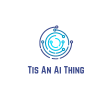Have you heard about the recent AI breakthroughs?
Machine learning is making strides in analysing vast data, while Natural Language Processing continues to evolve with advanced algorithms. The healthcare sector is seeing a revolution with AI applications, but ethical concerns are also in focus. What does the future hold for AI integration with IoT devices and evolving regulations? Stay tuned to discover more about the latest developments shaping the world of artificial intelligence.
Breakthroughs in Machine Learning
Machine learning has made significant strides in recent years, revolutionizing various industries. You have witnessed advancements in image recognition, healthcare diagnostics, and autonomous vehicles. These breakthroughs have been made possible by the ability of machine learning algorithms to analyse vast amounts of data and identify complex patterns with remarkable accuracy.
Companies are now able to streamline operations, improve customer experiences, and make data-driven decisions more effectively than ever before. With the continuous evolution of machine learning techniques, you can expect even more innovative applications in the future.
Embracing these advancements and staying updated on the latest developments will be crucial in leveraging the full potential of machine learning for your own professional growth and success.
Advancements in Natural Language Processing
In the realm of artificial intelligence, significant progress has been achieved in advancing Natural Language Processing techniques. Researchers have developed more sophisticated algorithms that enable machines to better understand and generate human language.
These advancements have led to improvements in chatbots, language translation tools, and sentiment analysis systems. One notable breakthrough is the development of transformer models like BERT and GPT-3, which have significantly enhanced language understanding and generation capabilities. These models have revolutionized various applications, such as search engines, virtual assistants, and content generation tools.
The future of Natural Language Processing looks promising, with ongoing research focusing on enhancing contextual understanding, improving multilingual capabilities, and creating more efficient language models.
AI Applications in Healthcare
Advancements in artificial intelligence have paved the way for transformative applications in healthcare, revolutionizing the industry’s approach to diagnosis, treatment, and patient care.
AI is being utilized in medical imaging to enhance the accuracy of diagnostics, helping identify potential issues earlier. Machine learning algorithms can analyse vast amounts of data to predict patient outcomes and tailor personalized treatments.

Chatbots powered by AI offer 24/7 assistance, improving patient engagement and providing quick responses to medical inquiries.
Additionally, AI-driven robotic surgery systems enable precise, minimally invasive procedures, leading to faster recovery times.
These innovative applications highlight the significant impact AI is having on improving healthcare delivery, ultimately enhancing patient outcomes and quality of care.
Ethical Considerations in AI Development
Considering the ethical implications of AI development is paramount in ensuring responsible and sustainable progress in the field. As developers, you must prioritize transparency in AI algorithms to ensure accountability and prevent bias.
It’s crucial to address issues such as data privacy and security to protect individuals’ information from misuse. Additionally, you should actively engage with diverse stakeholders to incorporate a wide range of perspectives in AI decision-making processes.

Striving for fairness and inclusivity in AI technologies is essential to avoid perpetuating existing societal inequalities. By upholding ethical standards, you contribute to building trust with users and stakeholders, fostering a positive environment for AI advancement.
Future Trends in Artificial Intelligence
Embracing the upcoming wave of innovations, you must anticipate the future trends shaping the landscape of Artificial Intelligence.
One major trend is the increased integration of AI with Internet of Things (IoT) devices, leading to smarter and more interconnected systems.
Additionally, expect to see a rise in explainable AI, focusing on transparency and interpretability of AI algorithms to build trust.
The utilization of AI in personalized healthcare is set to expand, revolutionizing medical diagnosis and treatment plans.
Enhanced natural language processing capabilities will drive improvements in virtual assistants and customer service interactions.
Lastly, the evolution of AI ethics and regulations will become more prominent as society grapples with the implications of AI advancements.
Stay informed and prepared for these transformative trends in AI.
Frequently Asked Questions
Can AI Technology Replace Human Creativity and Intuition?
AI technology can enhance and complement human creativity and intuition but can’t fully replace them.
Your unique abilities to think creatively and trust your instincts are essential in making nuanced decisions that AI can’t replicate.
How Do AI Algorithms Impact Job Security Across Industries?
AI algorithms are transforming job security by automating tasks, boosting efficiency, and eliminating the necessity for specific positions.
As technology progresses, individuals must adjust and develop new skills to remain competitive in the job market.
Are There Regulations in Place to Govern AI Technology?
Yes, there are regulations in place to govern AI technology. They aim to ensure ethical use, data privacy, and accountability in AI applications across industries.
Stay informed about evolving regulations to navigate compliance effectively.
What Are the Potential Risks of AI in Cybersecurity?
Potential risks of AI in cybersecurity include:
– Autonomous attacks
– Data poisoning
– Adversarial machine learning
You must stay vigilant to prevent breaches and ensure AI systems are secure against evolving threats. Regular updates and monitoring are crucial.
How Can AI Be Used to Address Environmental Challenges?
You can utilize AI to tackle environmental challenges by analysing vast datasets to identify patterns, optimize resource allocation, forecast climate impacts, and develop sustainable solutions.
AI offers innovative tools to enhance environmental conservation efforts.
Conclusion
You’ve now caught up on the latest AI news, from breakthroughs in machine learning to advancements in natural language processing.
AI applications in healthcare are transforming patient care, while ethical considerations are shaping the development of AI technologies.
As we look to the future, expect to see increased integration of AI with IoT devices, more explainable AI, personalized healthcare solutions, and evolving ethics and regulations in the field of artificial intelligence.
Stay tuned for more exciting developments in the world of AI!

Leave a Reply